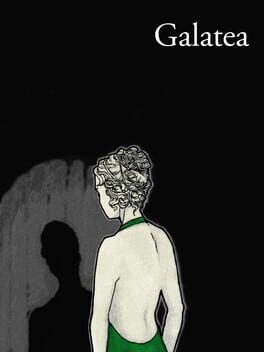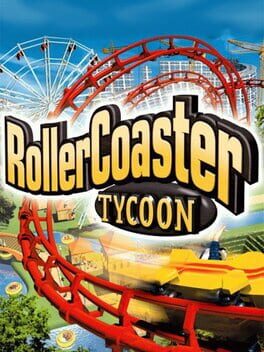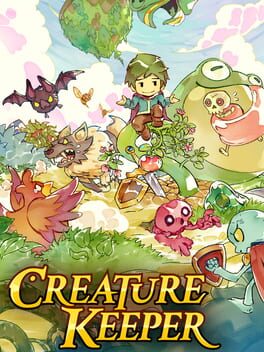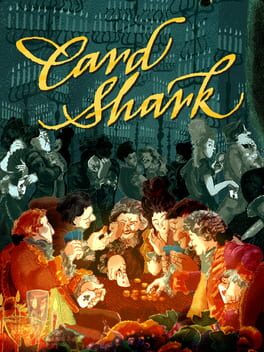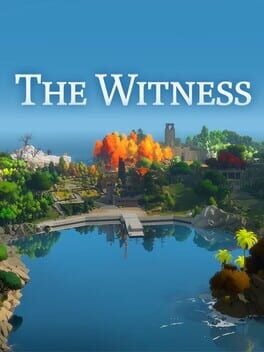AlexV
110 Reviews liked by AlexV
Galatea
2000
I want to come back to Galatea several times in the future, as it feels like there's enough meat here to last forever. I reached several endings, one of which I found some kind of satisfaction in, but I know there's many more. I looked into others talking about it and there was so much that it felt like they were talking about a different piece entirely. This game is entirely one conversation, and an incredibly deep and long one at that. That said, the parser has its limits. For the most part, all I can do are ask and tell about concepts, which feels reductive and adds a degree of artificiality that the brilliant writing can't seem to escape.
I live for conversations in games. My favorite kind of power fantasy is one of social competence, of using words and expressing emotions so effectively that I can learn about and help every decent person I meet. Normally the amount I can satisfy this fantasy comes down to technical competence and the interest a game has in deep conversation: either the conversations are sufficiently deep to give me that reward, or they aren't. There's no doubt that the conversation that makes up Galatea is deep...it's probably the most involved one I've ever encountered in games / IF, but it doesn't give me that satisfaction. Or rather, it does give me that satisfaction, but it also makes me examine what I'm actually feeling there.
I don't feel empowered by speaking to Galatea and I don't feel kind either. I feel invasive. I feel disrespectful. I feel like an emotional tourist. In the wake of Undertale, the last few years of games have been marked by much greater interest in the player and their pleasures and motivations. What's so compelling about this much earlier example of that interest is that it tries to tackle speech, a mechanic where the real-life counterpart is infinitely complicated and no model can capture the entirety of how it functions. Developers have largely given up, letting conversation be deep and branching and rewarding, but never natural.
Whereas Undertale emotionally punishes players for mindlessly and unfeelingly following the trail of content for the sake of completion, Galatea does the same with your own curiosity. Making conversational missteps feels awful and changes where that conversation can even go. When asking about mundane aspects of her life, you get the feeling that you're the gawker, you're just interacting with Galatea as a piece of art, as an exhibit in the gallery. When asking about something sensitive, you've got to balance your desire to know with the potential to hurt her, but also with the possibility for a therapeudic talk. These are the complexities that make real life conversation hard, the walls that keep us from fully understanding and hearing out the people around us. Conversation is risky, and I've never seen that mirrored in any interactive art other than this. This is a model for conversation that does not rely on exhausting every possible speech option, a revolutionary shift of focus on its own.
Shit, this is just begging for a feminist reading. The interactivity of games and especially interactive fiction goes far beyond the issues of, say, voyeurism in film. Yes, there is watching and all the complex politics that come along with that: Galatea is presented as a statue in a gallery. We're invited to look at and speak to her because she is an object of interest, a novelty. The politics of looking are ever-present. But interactivity adds layer upon layer upon layer to the complexity of where the player gets enjoyment. Teach someone to play parser games, and you'll quickly see the delight in invasion and free choice come out in obscene ways: TOUCH this character, KISS that character, FUCK another one. Parser-based IF has long been better than graphical games at showing consequences of these actions (or not allowing the player to do them and scolding them with their subconscious), but we are absolutely forced to engage with these questions in this piece.
The parser here is simple, with the HELP command explicitly stating that the vast majority of commands have been disabled, what's left being sensory commands, commands of physical touch, TELL, and ASK. What do I do if I want to give Galatea a hug and comfort her? ASKing doesn't produce a relevant result. Modifiers are rare. My choices are to HUG her or not to. To KISS (and where to kiss) or not to. The tools I'm given are limiting. The tools games give us are always limiting.
Point is, you feel gross. Looking feels gross. Prying feels gross. Touching feels gross. Comforting feels gross. Is there any way for me, as a player, to interact with this woman in a way that isn't broken on some level, that isn't generating pleasure through the power imbalance of me being a human being and her being a program with a particular sequence of commands which make her spill some feeling or fact about her life? I don't think there is. By being one of the purest conversation simulations in a game, Galatea justifies the relative simplicity and abstraction in typical game speech systems. No matter how much care is taken to be respectful and give a character agency, they are part of a computer program. No matter what we do, the player is extracting pleasure from their position of power over the NPCs around them. All we can do is make ourselves aware of this dynamic, and go back to our simplified Fallout conversations...and take a little more care not fall into the trap of exhausting a list of options.
I dunno, my thoughts are so scattered. There's SO much going on here. It's mind-boggling.
---
Try asking Galatea about yourself several times.
I live for conversations in games. My favorite kind of power fantasy is one of social competence, of using words and expressing emotions so effectively that I can learn about and help every decent person I meet. Normally the amount I can satisfy this fantasy comes down to technical competence and the interest a game has in deep conversation: either the conversations are sufficiently deep to give me that reward, or they aren't. There's no doubt that the conversation that makes up Galatea is deep...it's probably the most involved one I've ever encountered in games / IF, but it doesn't give me that satisfaction. Or rather, it does give me that satisfaction, but it also makes me examine what I'm actually feeling there.
I don't feel empowered by speaking to Galatea and I don't feel kind either. I feel invasive. I feel disrespectful. I feel like an emotional tourist. In the wake of Undertale, the last few years of games have been marked by much greater interest in the player and their pleasures and motivations. What's so compelling about this much earlier example of that interest is that it tries to tackle speech, a mechanic where the real-life counterpart is infinitely complicated and no model can capture the entirety of how it functions. Developers have largely given up, letting conversation be deep and branching and rewarding, but never natural.
Whereas Undertale emotionally punishes players for mindlessly and unfeelingly following the trail of content for the sake of completion, Galatea does the same with your own curiosity. Making conversational missteps feels awful and changes where that conversation can even go. When asking about mundane aspects of her life, you get the feeling that you're the gawker, you're just interacting with Galatea as a piece of art, as an exhibit in the gallery. When asking about something sensitive, you've got to balance your desire to know with the potential to hurt her, but also with the possibility for a therapeudic talk. These are the complexities that make real life conversation hard, the walls that keep us from fully understanding and hearing out the people around us. Conversation is risky, and I've never seen that mirrored in any interactive art other than this. This is a model for conversation that does not rely on exhausting every possible speech option, a revolutionary shift of focus on its own.
Shit, this is just begging for a feminist reading. The interactivity of games and especially interactive fiction goes far beyond the issues of, say, voyeurism in film. Yes, there is watching and all the complex politics that come along with that: Galatea is presented as a statue in a gallery. We're invited to look at and speak to her because she is an object of interest, a novelty. The politics of looking are ever-present. But interactivity adds layer upon layer upon layer to the complexity of where the player gets enjoyment. Teach someone to play parser games, and you'll quickly see the delight in invasion and free choice come out in obscene ways: TOUCH this character, KISS that character, FUCK another one. Parser-based IF has long been better than graphical games at showing consequences of these actions (or not allowing the player to do them and scolding them with their subconscious), but we are absolutely forced to engage with these questions in this piece.
The parser here is simple, with the HELP command explicitly stating that the vast majority of commands have been disabled, what's left being sensory commands, commands of physical touch, TELL, and ASK. What do I do if I want to give Galatea a hug and comfort her? ASKing doesn't produce a relevant result. Modifiers are rare. My choices are to HUG her or not to. To KISS (and where to kiss) or not to. The tools I'm given are limiting. The tools games give us are always limiting.
Point is, you feel gross. Looking feels gross. Prying feels gross. Touching feels gross. Comforting feels gross. Is there any way for me, as a player, to interact with this woman in a way that isn't broken on some level, that isn't generating pleasure through the power imbalance of me being a human being and her being a program with a particular sequence of commands which make her spill some feeling or fact about her life? I don't think there is. By being one of the purest conversation simulations in a game, Galatea justifies the relative simplicity and abstraction in typical game speech systems. No matter how much care is taken to be respectful and give a character agency, they are part of a computer program. No matter what we do, the player is extracting pleasure from their position of power over the NPCs around them. All we can do is make ourselves aware of this dynamic, and go back to our simplified Fallout conversations...and take a little more care not fall into the trap of exhausting a list of options.
I dunno, my thoughts are so scattered. There's SO much going on here. It's mind-boggling.
---
Try asking Galatea about yourself several times.
Galatea
2000
To an extent I can appreciate Galatea for its search for an NPC with more presence than usual in videogames in general and in text adventures in particular. If there is one thing I’ll never get tired of is people experimenting with IAs, especially when it is more about trying new models than raw technological power.
And yeah, you never know exactly how Galatea is and the conversations are equally blurred enough to not be able to really move anything exactly in the direction you want. My main concern is in not being able to properly develop any of its themes. In a way I guess having multiple big thematic ideas as well as various dozens of endings going around was just the perfect match for the game, but in my playthroughs none of them got into anything interesting. Probably much of it has to do with a writing that doesn’t stand up enough by itself.
In one of the conversations the main character ended up talking with Galatea about their family, their sister, and crying with her reaching through a connection beyond the cold relation of a visitor and a museum piece. The problem? It got out in a few lines (which can be fine if done well) and honestly didn’t feel to me that neither the main character nor Galatea had any kind of confidence, trust or just feeling between them yet for the talk to end up that way. It makes me wonder if it wouldn’t have been better to reduce all the possible ramifications to have a more focused development, in particular when reaching near the personal areas, probably the most interesting aspects of the dialogues. I know that Emily Short herself has already reckoned that this is no perfect game by any means, especially as more games and years passed by. And in a similar way, I appreciate Galatea in some ways, but the words weren’t enough to make me want to visit again.
And yeah, you never know exactly how Galatea is and the conversations are equally blurred enough to not be able to really move anything exactly in the direction you want. My main concern is in not being able to properly develop any of its themes. In a way I guess having multiple big thematic ideas as well as various dozens of endings going around was just the perfect match for the game, but in my playthroughs none of them got into anything interesting. Probably much of it has to do with a writing that doesn’t stand up enough by itself.
In one of the conversations the main character ended up talking with Galatea about their family, their sister, and crying with her reaching through a connection beyond the cold relation of a visitor and a museum piece. The problem? It got out in a few lines (which can be fine if done well) and honestly didn’t feel to me that neither the main character nor Galatea had any kind of confidence, trust or just feeling between them yet for the talk to end up that way. It makes me wonder if it wouldn’t have been better to reduce all the possible ramifications to have a more focused development, in particular when reaching near the personal areas, probably the most interesting aspects of the dialogues. I know that Emily Short herself has already reckoned that this is no perfect game by any means, especially as more games and years passed by. And in a similar way, I appreciate Galatea in some ways, but the words weren’t enough to make me want to visit again.
RollerCoaster Tycoon
1999
While a little more limited than its successor, the first RCT is still great. Forest Frontiers might be the first park I think of when it comes to the franchise, just a perfect intro park. The game has a lot of other really great well balanced scenarios as well. Beyond that, all that matters is that the coaster contruction was just as cool here as in later entries. I just love the creativity it affords you in putting together rides, parks, etc. Wonderful sim.
Super Mario 64
1996
Creature Keeper
2024
Card Shark
2022
Card Shark
2022
Journey
2012
Look, as much as I treasure this game I completely understand the (usually clear-headed and astute) swathe of middling reappraisals that I've noticed recently. I think the uniformly positive SHOCK 2 THE INDUSTRY reception this had, along with its legendary/unassailable art game™ status, are somewhat responsible for a glut of lazy contrarian game design theorizing--and the now VERY tired trend of copycat "nonviolent guideposted explorathons" that reek of a certain elitist hostility toward any games that dont fall into this hyper-accessible, beauty obsessed, pseudomeditative format. I'm sick of this very narrow concept of what constitutes an artistic or thoughtful game too!
However, I can't blame Journey for the cultural response that engulfed it, especially because I truly believe that Chen and Santiago operated from an honest and inquisitive place of creation while chasing the ideas that most captivated them--not out of some pompous guiding impulse to shake up the system or merely prove that games could be "more". Watching interviews with Chen where he barely holds back a giant beaming smile while discussing his inspiration for Journey--the sense of disempowerment, awe, and unity felt by those who had seen the Earth from space--showcase an entirely uncynical fascination for an implicitly compelling subject to explore through gameplay. Journey feels incredibly bright eyed and open: its taut aesthetic beauty, welcoming accessibility, ambiguous spirituality, and intimate nonverbal social system don't come across as demands or provocations to me, but as the shared passions of a group of artists culminating into this radiant, excited thing. A lot of the game actually feels metaphorical of the game-creation process for this small studio of friends experimenting together: the stone-carved glyphs and histories of bombastic past creators are present and noted, of course, but they're merely abstract window dressing in the much more personal collaborative journey being discovered.
I do think ThatGameCompany's prominent reputation HAS affected their process, and no longer feel the same spark in their work. I don't know if I believe in the whole "art has a singular soul" concept or even invest too seriously one way or the other in auteur theory in general, but I do know that for me, Journey emits a purity of spirit that makes me feel an intense affinity with those who created it--one that isn't matched by later games with very similar structural trappings. Maybe it's not possible to feel that anymore if you're coming to it with the foreknowledge of the game's reputation and legacy, or if you've already had this sort of experience with one of its many stylistic second cousins. I'm not sure.
However, I can't blame Journey for the cultural response that engulfed it, especially because I truly believe that Chen and Santiago operated from an honest and inquisitive place of creation while chasing the ideas that most captivated them--not out of some pompous guiding impulse to shake up the system or merely prove that games could be "more". Watching interviews with Chen where he barely holds back a giant beaming smile while discussing his inspiration for Journey--the sense of disempowerment, awe, and unity felt by those who had seen the Earth from space--showcase an entirely uncynical fascination for an implicitly compelling subject to explore through gameplay. Journey feels incredibly bright eyed and open: its taut aesthetic beauty, welcoming accessibility, ambiguous spirituality, and intimate nonverbal social system don't come across as demands or provocations to me, but as the shared passions of a group of artists culminating into this radiant, excited thing. A lot of the game actually feels metaphorical of the game-creation process for this small studio of friends experimenting together: the stone-carved glyphs and histories of bombastic past creators are present and noted, of course, but they're merely abstract window dressing in the much more personal collaborative journey being discovered.
I do think ThatGameCompany's prominent reputation HAS affected their process, and no longer feel the same spark in their work. I don't know if I believe in the whole "art has a singular soul" concept or even invest too seriously one way or the other in auteur theory in general, but I do know that for me, Journey emits a purity of spirit that makes me feel an intense affinity with those who created it--one that isn't matched by later games with very similar structural trappings. Maybe it's not possible to feel that anymore if you're coming to it with the foreknowledge of the game's reputation and legacy, or if you've already had this sort of experience with one of its many stylistic second cousins. I'm not sure.
Rocket League
2015
This is currently the game I'm addicted to. To me this game is just the embodiment of fun. I can play this with anyone and we are SURE to have fun, laugh, chat through the WHOLE session and end up getting a bit better. The mechanics and physics engine are simply excellent, the customisation is brilliant, it has, weirdly, one of my favorite game soundtracks, and the extra modes are just fun all around. I absolutely love Rocket League. One of the best purchases I have ever made.
The Witness
2016
The Witness
2016
I remember when The Witness was announced ages ago, I thought to myself "Oh hey, Jonathan Blow made Braid and that game was kinda cool, I'll keep an eye on this" and man did it surpass my expectations. Easily my favourite game of 2016, The Witness is a colourful and vibrant puzzle game that takes place on a secluded island. I think one of my favourite things about the game is that without using words, you (the player) gradually learn more and more puzzle rules until by the end of the game, you are solving these complex puzzles with so many rules to abide by, yet still follow the same simple format. It's also the first game in a terribly long time that has made me bust out a pen, paper, and MS Paint in order to help me puzzle things out. I enjoyed every minute of the game and it never seemed frustrating. Another thing of note is that while a good soundtrack is always important to me, The Witness completely lacked an OST. This was actually an excellent move because it allowed me to solve some of the tougher problems in silence, and let me choose my own soundtrack through Spotify for the majority of the game. This is something I very much appreciate every now and again. I adore puzzle games, and The Witness is the best one I have ever played. The Final Challenge is satisfying and it might just be the first puzzle game I go back to and play again someday, despite knowing all the rules now. Any excuse to explore a world like that again would be great.
